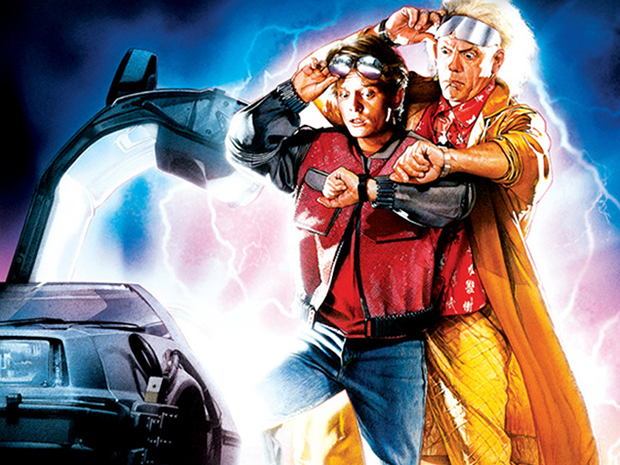
Reviews: Science on screen
Since EMBL was founded, there has been wild variety in science-themed films gracing our cinema screens – many timeless classics, others forgotten as soon as they came out. Just in case you missed any, a team of film enthusiasts from the Lab has picked out their favourite movies – one from each of the past four EMBL decades.


1974–1984: Alien (1979)
In space no one can hear you scream. And yet Ripley Scott’s masterpiece managed to echo through time, appraised as few science fiction movies ever were. The first of a series of such movies, Alien debuted in 1979 but still has a lot to teach to modern-day sci-fi movies: A rare technique in blockbusters nowadays, Scott takes his time immersing the viewer into the setting – the cavernous towing spaceship Nostromo – before any real action begins. Nearly 25 years after its original release, Alien got digitally remastered, adding more detail to the visual, but mainly the sound aspect of the movie. Bottom line, Alien even made it to the National Film Registry of the Library of Congress, so it should definitely be on your list.
George Kritikos, PhD student, EMBL Heidelberg

1985-1994: Back To The Future, Part II (1989)
There are not many movies that perfectly wrap hardcore scientific ideas into lavish entertainment or even comedy. Back To The Future Part II, however, is the movie that did it for me. Not only showing the future in an almost realistic way (I’ll see you guys next year buying a Hoverboard and a flying DeLorean), this flick also threw parallel and alternative timelines at the ordinary moviegoer. I still remember my (eight-year-old) brain exploding when Doc Brown drew a very simple diagram on a blackboard explaining how a sports almanac and a cane changed the world…and after having seen that about 30 times, it still gives me goosebumps. Yep, not all sequels suck!
Tim Wiegels, EMBL alumnus

1995-2004: The Eternal Sunshine of the Spotless Mind (2004)
What would you do if technology and science had reached the level of giving you the opportunity to remove selected memories from your brain? After breaking up with his girlfriend, Joel decides to go through with that and erase her from his memory. But as he experiences the loss of every bitter moment they had, he realises he is also giving up on all the loving and happy ones. A deeply touching and meaningful story, that makes one think you cannot manipulate the human mind like a computer hard disk: select, delete, overwrite. After all, what’s left of us if you take away our memories?
Vasiliki Karyoti, desktop support engineer, EMBL Heidelberg

2005-2014: Moon (2009)
Duncan Jones’ Moon is an inventive, imaginative and original attempt to provide answers to what it means to be human – using only one actor, a sentient computer and the moon as a platform to explore philosophical and physiological themes. It was fascinating to watch the degeneration of Sam’s mind, considering he only had a HAL 9000-like companion called GERTY for company for three years. Meanwhile, Kevin Spacey’s anthropomorphisation of GERTY is unnerving, not least because of a disconcerting combination of monotone voice and unsettling use of smiley faces to emphasise “feelings”. But it is the relationship that Sam has with his doppelganger that is what really makes the film special – you are with Sam on every step of his weird and seemingly hopeless journey.


